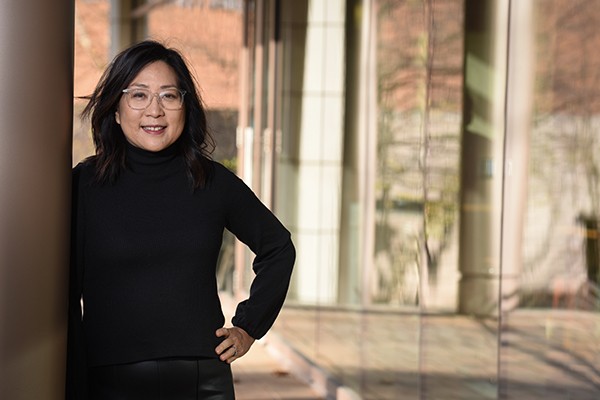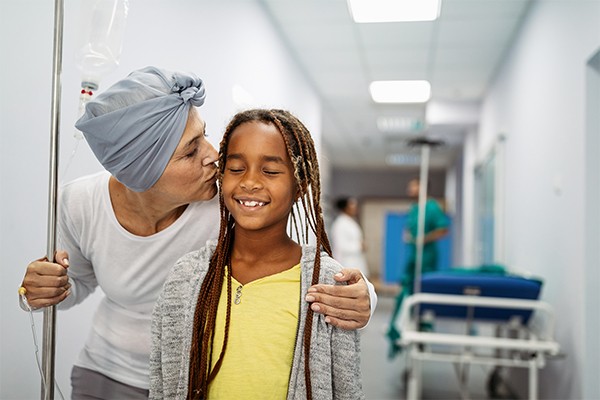
Convergent Thinking, Creative Application
At Jefferson, we work hard to bring people, ideas and resources together in new ways—creating opportunities to apply knowledge, methods and technologies from one field, to questions asked in another. This year, our research report offers a glimpse of how convergent thinking is manifest across our institution – through multidisciplinary teams who combine their research to solve challenges, as well as those who team up to tease apart the interwoven problems that comprise complex challenges.
Our research enterprise is robust and growing. We are having major impact across the research spectrum—from making fundamental discoveries on the nanoscale and atomic levels to the translation and application of new therapies, processes and products in health care, industry, local communities and multifaceted ecosystems.
Discover the many ways that Jefferson researchers are moving past boundaries to pursue opportunity and surmount our world’s most significant challenges.
Toward Smarter, Healthier Cities
The Institute for Smart and Healthy Cities was launched in 2020 to support multidisciplinary research, innovation and education on the transformation of urban environments into more efficient, healthier and livable cities.
At Jefferson, we believe there is a kind of energy created when once-distinct disciplines intersect: the light of the resulting discovery is extraordinary, as is the warmth of human benefit from applying that discovery.
Featured Articles
Sending Jefferson Research to Space
Three of Jefferson’s collaborative research projects will become part of the upcoming Rakia space mission, the first-ever private mission to the International Space Station.
Research Stats
active studies across Thomas Jefferson University and Jefferson Health
increase in clinical trials over 5 years
in NIH funding – an approximate 38% increase since 2016
Archive
The first issue of Research at Jefferson – Fusing Discovery, Imagination and Application – focused on Thomas Jefferson University’s commitment to a full spectrum of research and a robust culture where impassioned faculty, students, clinicians and technical staff collaborate across the traditional divides between basic, translational, clinical and applied.






